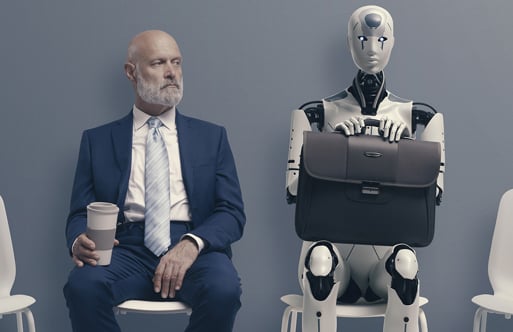The event was jointly sponsored by the University of Bath, BCS, and Set-Squared, and was co-ordinated by Wired-West.
'The ongoing march of technological development is not a trend, which will run its course in a few years' time, people aren't going to dump broadband and go back to dial up, but a non- reversible one way development destined to make our lives move even faster than previously imagined' stated Michael.
Over recent years there has been a significant attitude shift in the relationship between businesses and their customers. Customers are dictating more and more what they want and when they want it, and show little customer loyalty to those who don’t deliver.
Young people in particular want control over the media they interact with and see newspapers as largely irrelevant (make a note Rupert Murdoch, only eight percent read papers).
One media observer Alan Mitchell, whilst writing for Marketing Week, commented on the fact that customers no longer go to a business and say 'What have you got that I might like to buy?', but are now saying 'I want to buy this, do you sell it?'
Marketing
The days of 'Interruptive marketing' are numbered. For example, 71 per cent of US consumers have recently purchased a 'time-shift' box in order to skip the adverts on television. Direct marketing is rapidly becoming a media dinosaur, soon to be extinct.
Companies, therefore, need to constantly innovate in order to keep their customers. By placing their research and development on the outside of their company and prioritizing developments, Google have received a great deal of positive feedback from would-be consumers.
The BBC has a similar initiative, namely 'Backstage', which asks its would be audiences for feedback and acts upon it.
Search engines help consumers self select relevance to them; pop-ups are rarely relevant which is why, like cold calls, they are so unwelcome. In future search engines could flag-up trusted sites, as a way to help consumers avoid those subject to pop-ups or those with a less favourable reputation.
With television and print advertising revenues dropping dramatically over recent years, and only radio revenues rising (people can do other things while they listen to a radio) it would seem that ambient adverts, such as posters on bus shelters, will be on the increase, since the viewer has no control over them.
Many companies think that putting an advert on a website is a great thing to do but consumers increasingly want something more to engage them.
Johnson & Johnson have a new parent's subscription service which emails nervous parents every week, during the development of their child, informing them of what should be happening in terms of development and behaviour. This encourages brand loyalty with these volunteer email recipients.
The return of the infomercial is also predicted as a means of selected advertising by the consumer themselves.
Customers receive a long-form advert from companies they have requested them from, and these will go into a lot more detail about the products than, for instance, your typically rapid and vapid TV ad.
In fact some retailers, such as Thomas Cook and Audi, have themselves become broadcasters, and in the case of the former, have their own channel, deemed cheaper to run than paying for advert space amongst more traditional broadcasts.
The industry 'think-tank' Demos recently did a survey which questioned 3G phone users whether they liked their phones. All replied enthusiastically in the affirmative.
It then informed them that their service providers knew exactly where they are, when their phones were on, at all times, and asked them again how they felt about their phones and this covert exchange. The response was very different and previously happy customers were lost.
Television
Within the last 18 months Pod-casting has taken off in a massive way, customers listening to their favourite time-shifted radio, and the BBC has taken note of this and are currently working on video on demand where viewers will be able to watch what they want to when they want to.
The only limitation to this integrated media player being that programme requests will probably only be available at least seven days after the date of initial transmission.
The UK is in the forefront of illegal downloading, although this could change following the recent announcement by Lovefilm to sell movie downloads.
The cost of each download will be comparable to purchasing the DVD, meaning customers will get to keep the film they've downloaded, but legally. DVD itself has been exceptionally successful due in part to distributors giving consumers more of what they want in the form of extras and better picture/sound quality.
Mobile TV could become very popular in future but there are still a number of technological issues to be ironed out before this format is as accomplished as standard television broadcasting.
Ultimately TV will be made specifically for smaller screens, rather than having to be re-edited and re-sized as it sometimes is now. In fact consumers and broadcasters are pushing towards more interactive television, although the content has to be tailored to the delivery platform.
The Web
SeeMeTV demonstrates the high demand out there for user-generated content and for sites where the customer is involved in the creation of the site, providing their own content, like blogging, but instead of words, pictures and videos are sent. This site has had over four million downloads during its first four months, netting the owners over £1 million in profits.
The increase in sites such as these, where the consumer is also the content provider, including, in this case local news for local people, has raised the question - Are newspaper editors really needed any more?
This new media age, while fantastically beneficial to companies, can also be very destructive. For example, Kryptonite Locks were almost ruined due to a blog which alleged that their supposedly hard to pick locks could be picked using a cheap biro.
The blog was posted on numerous bicycle sites and emails were sent warning likely users, and the company’s share value fell dramatically overnight. The manufacturers saved themselves by directly engaging with their core users but it could so easily have been the end of them.
Music and entertainment sites are at the forefront of consumer research and targeting their desired audiences. Since many young people receive all their functionality from these sites it is perhaps time for other companies to take the time to learn from them.
General trends
In future people will pay for their services not solely by cash but by information exchange; providers will monitor spending habits and pass the information on to other interested parties for further remuneration.
Reuters and Amazon, for example, will frequently serve a customer based on their historical behaviour within their sites, and television companies are following suit, providing clients with programming based on accumulated knowledge on a person's preferences in the past.
Technology is also changing the way in which people are educated and more and more revolves around specific information and the ease of how to get it.
In 1990 Ford carried out a survey on US teens asking them what their defining purchase would be. The vast majority answered; a car. Ten years later the answer was markedly different; a laptop.
Ultimately the new media age revolves around consumer communications, whereby customers are now taking control of what new media is developed and which will succeed.

















